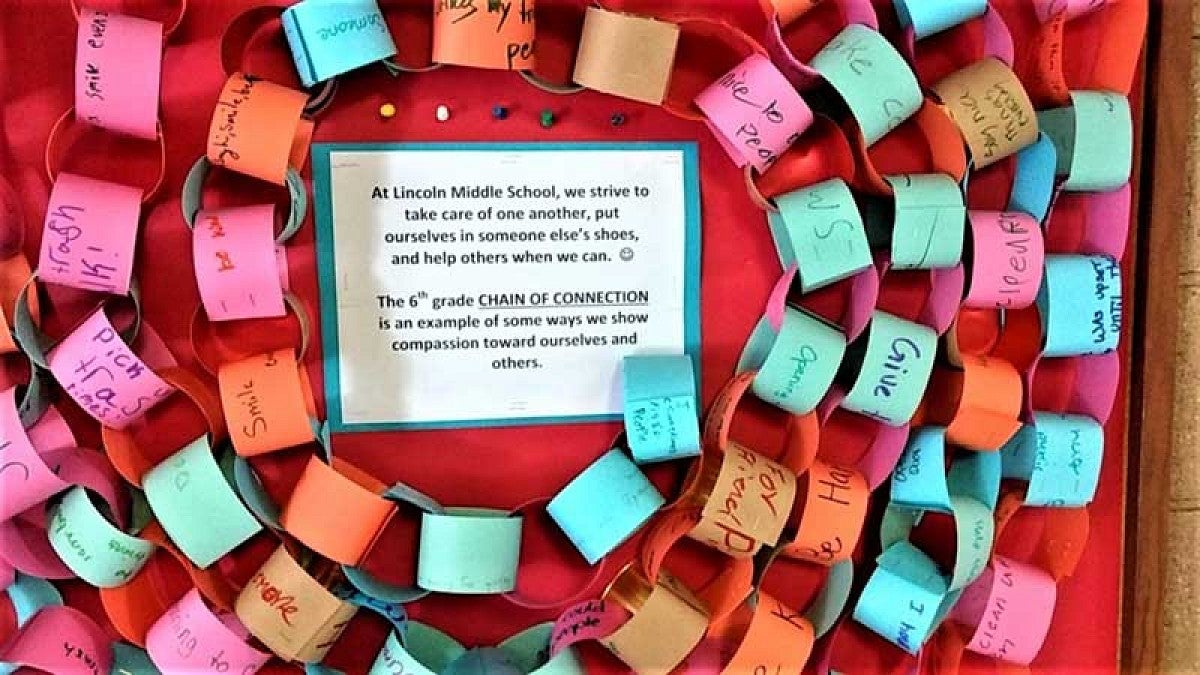Sixth grade can be a tumultuous time for youth, and the additions of a global pandemic and intense discussions around race have only increased adolescent stress in recent months.
With funding from the National Institutes of Health, a team of researchers from the UO and the local community is working on a way to teach students basic mental health skills as well as give teachers a tool to keep classrooms on a more even keel.
The $1.5 million, three-year grant is helping the College of Education’s Nichole Kelly; local licensed psychologists Lori Allen and Shin Shin Tang, of the Oregon Mind Body Institute; and Adam Wendt of education technology company Trifoia develop a curriculum to promote better mental health habits among sixth graders that can be rolled out nationally.
“The average onset for anxiety-related disorders is around 13 years old, and that’s why we’re targeting this group,” said Kelly, who works in the college’s Counseling Psychology and Prevention Science programs. “Schools are one of the top sources of stress. Our goal is we hope to change the overall school culture and how we talk about mental health.”
The curriculum, called Attune-Ed, is based on a pilot project using a concept called “trauma-informed mindfulness” funded by Oregon Community Foundation and which has been underway for three years at Lincoln Middle School in Cottage Grove.
“We’re attempting to reach rural middle school students and teachers,” Kelly said. “The rates of trauma are not necessarily different in these areas, but their access to resources are more limited.”
The grant will allow the team to adapt the written curriculum being used in Cottage Grove into a web-based model in order to more efficiently disseminate it nationwide without requiring significant one-on-one instruction.
“Trifioa is coming in with the technology lens, Lori and Shin Shin have developed this from a psychologist’s perspective, and I will conduct the research,” Kelly said.
The program teaches students to better read their emotions and determine when they are outside of their “window of tolerance,” which can include displays of anger or sadness or bouts of high energy. Teachers help students figure out mindful steps they can take to get back “inside that window,” whether it’s getting some exercise, guided imagery, progressive muscle relaxation strategies or deep breathing.
“We teach about self-awareness and what takes you out and what gets you back into your window,” Kelly said.
It’s also meant for teachers to better manage their own stresses and hit a reset button in their classroom.
The trauma-informed component recognizes that many students and teachers have a history of trauma. The program isn’t meant to address that but instead recognize it may be a source of what has pushed them outside their window of tolerance. Teachers are trained to connect students who approach them seeking help beyond their training with resources identified at the beginning of the program.
Tang, an alumna of the UO’s psychology department, said they’re not trying to turn teachers into therapists, but they want children to learn how to take care of their emotions and have healthy relationships.
“Students often know they are misbehaving but have difficulty regulating their emotions, especially when their brains aren’t fully developed,” said Allen, an alumna of the counseling psychology program. “Having this more compassionate but more accurate way of looking at it is what’s going to be more effective to help kids learn, focus and feel better about themselves and grow into adults who can be less reactive.”
All teachers receive training in the program, with a few selected to serve as experts and resources for their colleagues who have questions. Students receive a total of 12 lessons that cover mental health and skills on how to regulate oneself, as well as on relational awareness: how people are connected, how to engage in mindful listening and how relationships affect health and mental health.
“We want the e-learning program to be easy for teachers so that they learn along with the students, because mental health and mindfulness are uncomfortable topics for many teachers,” Allen said. “We wanted it to be the most accessible, easy and practical method for them to teach a subject that we don’t believe at the universal level needs to be taught by experts. We want to decrease the stigma.”
The program has been well-received by teachers, administrators, students and parents in Cottage Grove. The researchers have heard from parents whose children have used and shared the techniques with family members in stressful situations and from teachers who have seen its benefits.
“Our hope is to distribute this so people aren’t thinking they have to have anxiety or depression to get help,” Allen said, “They can learn to take care of their mental and emotional health just like they would take care of their physical health with good nutrition and exercise.
Allen said mental health education and skills can be preventive and should not be a privilege only for those who have access to counseling.
“We want to make sure this is about how we help kids get mental health and how to get mental health into public schools in a way that is very thoughtful,” he said.
Wendt, of Trifoia and a UO alumnus, said the team has started production on the course assets. The goal is to produce an accessible and enjoyable learning experience for teachers and students, while taking into account the needs of blended-learning environments in the post-COVID world of K-12 education.
“We have enjoyed working on this very timely project,” Wendt said. “The project team has long understood that mental health education and support paired with alternative delivery and teaching models, improves reach and can have a positive impact on kids’ mental health. I can’t think of a better time for a project like AttuneEd.”
—By Jim Murez, University Communications


